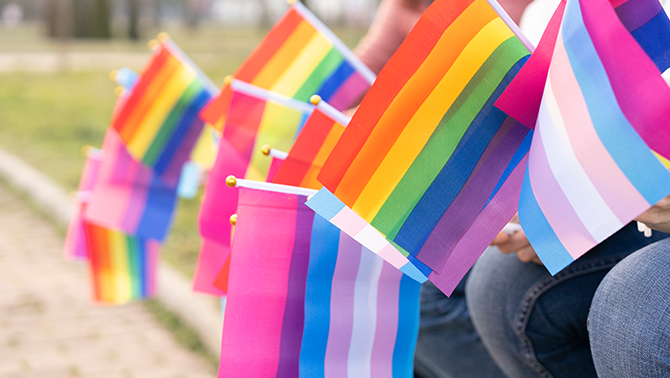
History of LGBTQ+ Rights in the US & What That Means for Business Travel
Every June as we refocus the lens on the LGBTQ+ community’s struggles, contributions, and history, it’s easy to forget that so much has changed in such a short time.
It was only in 2003 that the U.S. Supreme Court struck down Texas’ anti-sodomy law in Lawrence vs. Texas, which effectively decriminalized homosexuality across the country.
It was only in 2009 that President Obama signed the Matthew Shepard Act into law, extending the victims of hate crimes to LGBTQ+ Americans, eleven whole years after Matthew Shepard’s murder.
In 2015, the Supreme Court ruled against Section 3 of the Defense of Marriage Act (enacted in 1996, signed by President Clinton, and banned the federal government from recognizing same-sex marriages) in Obergefell vs. Hodges, granting same-sex couples the right to marry in all 50 states.
The journey for trans rights has also been long in the making. In 2016, the U.S. military lifted its ban on transgender members, only for the ban to be reenacted in 2018 by the Trump administration. In 2021, President Biden signed an executive order overturning the ban. However, in 2023 alone, 533 anti-trans bills have been introduced in 49 states, with 62 passing and 374 actively in the legislation process.
This is all heavy stuff, and you may be wondering what all this means for corporate travel. Primarily, it should remind us that the fight for protection and empowerment of LGBTQ+ people is far from over, and that even with all the positive landmark decisions and policies, there are still active, and unfortunately successful, efforts to isolate and discriminate against the LGBTQ+ population.
The best way to combat hatred is with knowledge, so let’s look at some recent travel focused statistics.
LGBTQ+ Traveler Statistics
According to a 2022 report by Booking.com that surveyed LGBTQ+ travelers from across 25 countries, 82% have experienced less-than-welcoming or uncomfortable experiences when traveling, with 64% reporting they have to consider their safety and wellbeing, with 31% of these negative experiences occurring when out in public.
More than half (55%) have experienced discrimination while traveling, and 51% believe their travel destination “bucket list” has been affected by being a member of the LGBTQ+ community.
On a happier note, 85% of these surveyed travelers also said that a majority of their travel experiences have been positive.
Probably two of the most compelling statistics are the following: BTN reports that 95% of LGBTQ+ business travelers concealed their sexual orientation on a business trip, and that 15-20% of Gen Z Americans identify as trans or non-binary.
So what’s next for LGBTQ+ business travel?
The studies show that LGBTQ+ Americans still have major safety considerations when traveling, despite an urge to do so. It is vital for the success and inclusivity of corporate travel programs to include LGBTQ+ views and concerns in business travel policies and procedures. Consider starting an employee resource group, surveying employees anonymously, or appointing a head of DEI to focus a lens on LGBTQ+ needs. To make a change, we’ll all need to work together.